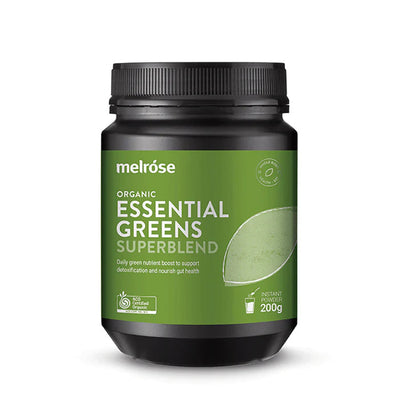Omega 3 (Fish Oil) - 5 Fantatstic Ways to improve your Health
two serves of fish a week, can help your heart.
Omega 3 or more commonly termed fish oils has lots of hugely beneficial improvements in your health, and today we look at what Omega 3 is and how it helps improve you in so many ways. If you're worried about your heart health, eating at least two servings of fish a week could reduce the risk of heart disease.

The human body can make most of the types of fats it needs from other fats or raw materials. That isn’t the case for omega-3 fatty acids (also called omega-3 fats and n-3 fats). These are essential fats—the body can’t make them from scratch but must get them from food. Foods high in Omega-3 include fish, vegetable oils, nuts (especially walnuts), flax seeds, flaxseed oil, and leafy vegetables.
What makes omega-3 fats special? They are an integral part of cell membranes throughout the body and affect the function of the cell receptors in these membranes. They provide the starting point for making hormones that regulate blood clotting, contraction and relaxation of artery walls, and inflammation. They also bind to receptors in cells that regulate genetic function.
Because of these amazing cell receptors Omega 3 Delivers some amazing results

1.Omega-3s Can Fight Depression and Anxiety
Depression is one of the most common mental disorders in the world.
Symptoms include sadness, lethargy and a general loss of interest in life (1, 2).
Anxiety, also a common disorder, is characterized by constant worry and nervousness.
Interestingly, studies indicate that people who consume omega-3s regularly are less likely to be depressed (4Trusted Source, 5Trusted Source).
What’s more, when people with depression or anxiety start taking omega-3 supplements, their symptoms improve.
There are three types of omega-3 fatty acids: ALA, EPA and DHA. Of the three, EPA appears to be the best at fighting depression

2.Omega-3s Can Improve Eye Health:
DHA, a type of omega-3, is a major structural component of the retina of your eye (11Trusted Source). When you don’t get enough DHA, vision problems may arise (12Trusted Source, 13Trusted Source). Interestingly, getting enough omega-3 is linked to a reduced risk of macular degeneration, one of the world’s leading causes of permanent eye damage and blindness.

3.Omega-3s Can Promote Brain Health During Pregnancy and Early Life:
Omega-3s are crucial for brain growth and development in infants. DHA accounts for 40% of the polyunsaturated fatty acids in your brain and 60% in the retina of your eye (12Trusted Source, 16Trusted Source). Therefore, it’s no surprise that infants fed a DHA-fortified formula have better eyesight than infants fed a formula without it (17Trusted Source). Getting enough omega-3s during pregnancy is associated with numerous benefits for your child, including (18Trusted Source, 19Trusted Source, 20Trusted Source): Higher intelligence Better communication and social skills Fewer behavioral problems Decreased risk of developmental delay Decreased risk of ADHD, autism and cerebral palsy

4.Omega-3s Can Improve Risk Factors for Heart Disease
Heart attacks and strokes are the world’s leading causes of death (21Trusted Source).
Decades ago, researchers observed that fish-eating communities had very low rates of these diseases. This was later linked to omega-3 consumption (22Trusted Source, 23Trusted Source).
Since then, omega-3 fatty acids have been tied to numerous benefits for heart health (24Trusted Source).
These benefits address:
Triglycerides:Omega-3s can cause a major reduction in triglycerides, usually in the range of 15–30% (25Trusted Source, 26Trusted Source, 27Trusted Source).
Blood pressure: Omega-3s can reduce blood pressure levels in people with high blood pressure (25Trusted Source,
28Trusted Source).
“Good” HDL cholesterol:Omega-3s can raise “good” HDL cholesterol levels (29Trusted Source, 30Trusted Source, 31Trusted Source).
Blood clots:Omega-3s can keep blood platelets from clumping together. This helps prevent the formation of harmful blood clots (32Trusted Source, 33Trusted Source).
Plaque:By keeping your arteries smooth and free from damage, omega-3s help prevent the plaque that can restrict and harden your arteries (34Trusted Source, 35Trusted Source).
Inflammation: Omega-3s reduce the production of some substances released during your body’s inflammatory response.

5. Omega-3s Can Fight Age-Related Mental Decline and Alzheimer’s Disease
A decline in brain function is one of the unavoidable consequences of aging.
Several studies link higher omega-3 intake to decreased age-related mental decline and a reduced risk of Alzheimer’s disease (
One review of controlled studies suggests that omega-3 supplements may be beneficial at disease onset, when the symptoms of AD are very mild (
Keep in mind that more research is needed on omega-3s and brain health.
There are numerous other benefits of fish oil and its uses, these include asthma, cancer, liver fat, bone & joint health, alleviate menstrual pain, help with sleep, skin health, ADHD








Leave a comment